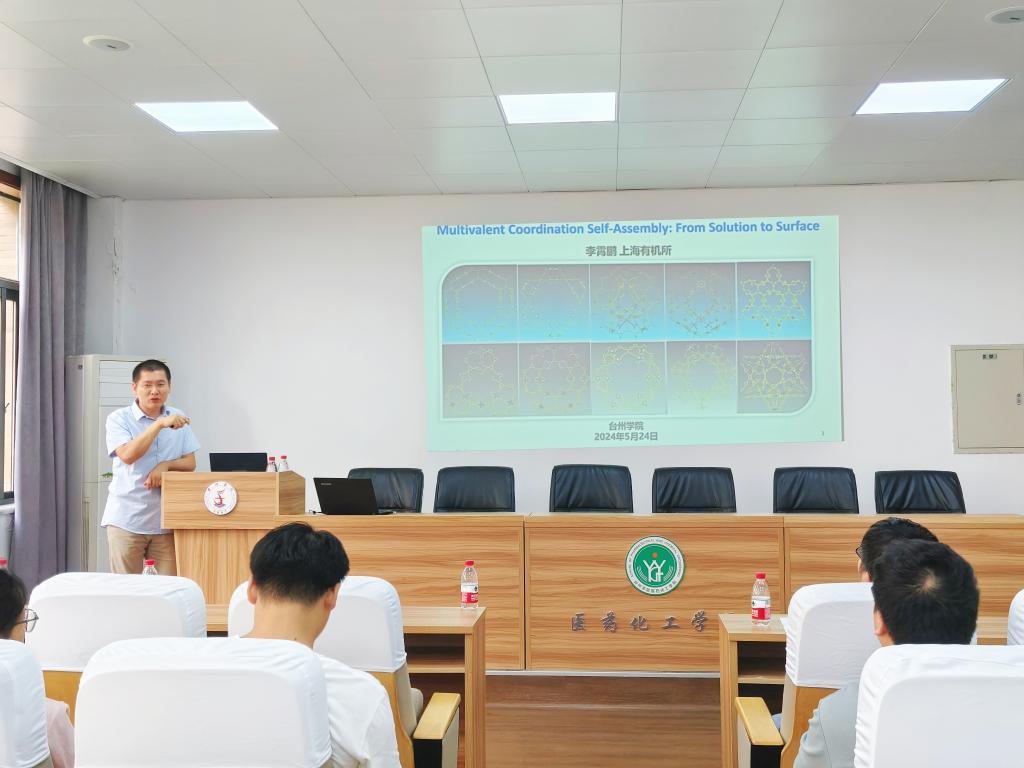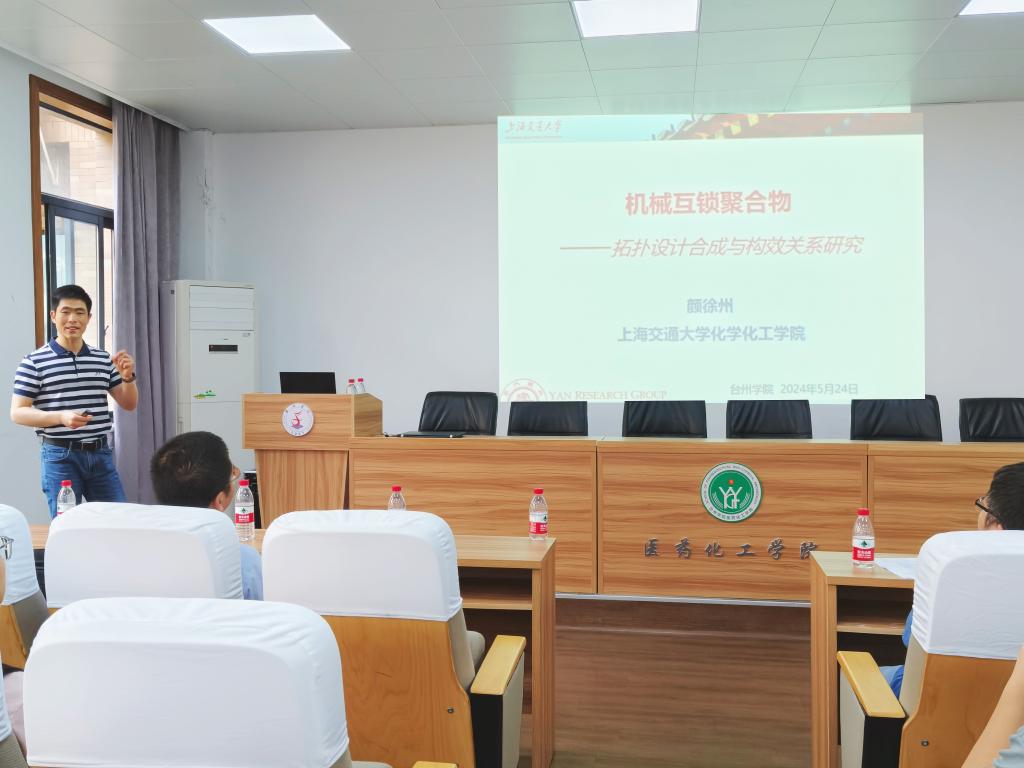The School of Pharmaceutical and Chemical Engineering and the Institute for Advanced Study jointly held lectures on the frontiers of supramolecular chemistry and polymer materials in the second conference room on the morning of May 24. Li Xiaopeng, a researcher from Shanghai Institute of Organic Chemistry, Chinese Academy of Sciences, and Yan Xuzhou, a researcher from Shanghai Jiaotong University, were invited to deliver the lectures. The lectures were hosted by Ma Da, Vice Dean of the School of Pharmaceutical and Chemical Engineering.

In the lecture titled “Self-assembly of Multi-Ligand Supramolecules”, Li Xiaopeng introduced the latest research progress of his team in the precise construction of ligand supramolecules. Inspired by the self-assembly of living systems to form complex biomolecules, they have realized the precise construction of multilayered coordination supramolecules with high coordination site density and high stability by designing multi-armed organic ligands and serialized multi-armed metal-organic ligands, reducing the ligand degrees of freedom and improving the orientation. At the same time, they developed a unique multi-dimensional mass spectrometry technique to break through the bottleneck of supramolecular characterization technology, and enhanced the design through conformational relationship analysis to achieve functional properties that are not available in traditional macrocyclic coordination supramolecules.

In the lecture titled “Mechanically Interlocked Polymers: Topological Design, Synthesis and Conformational Relationships”, Yan Xuzhou highlighted three major advances made by his team in the research of mechanically interlocked polymers in terms of their fine design, efficient preparation and properties. They have developed three types of new interlocking polymerization strategies, which solves the synthesis of high-density mechanical bonding systems, established the conformational relationships between microscopic mechanical motions and macroscopic mechanical properties, so as to reveal new phenomena of polymer physics, and explored the new applications of mechanically interlocking polymers in the fields of mechanical force adaptive materials, aerogel materials and energy storage materials.
In his concluding marks, Ma Da pointed out that the lectures of the two researchers had important academic value and reference significance for the development of supramolecular chemistry and polymer materials. He requested the teachers and students of the School of Pharmaceutical and Chemical Engineering to further broaden their academic horizons and strive for greater breakthroughs in their respective fields of research.